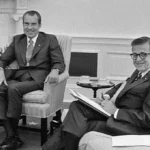Blog Post
From Wendell Berry to Edoardo Albert: My best books of 2021
By Jonathon Van Maren
By Jonathon Van Maren
It is the time of year when everyone is releasing their “Best Books of 2021” list, and I’ve been asked to do the same. I read around sixty books this year on a range of topics, but I’ll try to narrow it down to several categories and highlight just a few that I particularly enjoyed.
Most of what I read is history. If you’re interested in Dutch history (which I am for obvious reasons), The Dutch Revolt by Geoffrey Parker, on the struggle to throw off the Spanish yoke, is very good. The Occupied Garden: Recovering the Story of a Family in the War-Torn Netherlands was beautifully written. The authors are two women exploring the story of their family under Nazi Occupation, with the history of the wartime Netherlands woven throughout. The prose and the research are both exceptional—this is likely the best snapshot you’ll get of the Occupied Netherlands in English.
Paul: A Biography by N.T. Wright is one of the most fascinating books I’ve read in years. Wright analyzes the life and work of the Apostle Paul—the historical context, the chronology of his letters, what we do and do not know—and his brilliance as a historian makes much of the New Testament come alive. Justo Gonzalez’s The Story of Christianity: Volume I is also highly recommended. Every year I try to read several books on the early church, and so this year I tackled Augustine of Hippo by Peter Brown, which was a tough but worthwhile read, and The Life of St. Anthony by Athanasius of Alexandria. I’ve know the story of Athanasius most of my life, and so discovering that he’d written a bestselling biography was a bit of a revelation.
John Newton, Jonathan Aitken’s biography, was a comprehensive overview of someone I’ve wanted to know more about since I read his autobiography (I also read Newton’s abolitionist tract Thoughts Upon the African Slave Trade.) The Splendid and the Vile: A Saga of Churchill, Family, and Defiance During the Blitz is as brilliant as everything else Erik Larson has written. Do we need another Churchill biography? Larson tips the scales to yes. I also started reading the work of the great British travel writer Patrick Leigh Fermor. A Time of Gifts is the first in his trilogy on his walk across pre-war Europe from the Hook of Holland to Constantinople, and Fermor has an almost unparalleled ability to transport the reader back in time with details that would feel overdone in most other writers.
One of the best popular historians writing today is Tom Holland. Last year I read Dominion, his brilliant (and much-discussed) history of Christianity as the basis of Western Civilization. This year, I read Millennium: The End of the World and the Forging of Christendom, his history of the medieval era; Dynasty: The Rise and Fall of the House of Caesar; and I’m currently working through Persian Fire: The First World Empire and the Battle for the West. Holland writes histories like novels, and anyone who wants to get acquainted with ancient history without breaking their brains on Gibbon or some other intellectual should pick up his books. Millennium in particular made the Middle Ages come alive.
Two particularly devastating 20th century memoirs I read were Under a Cruel Star: A Life in Prague 1941-1968 by Heda Margolius Kovály and I Am Fifteen—and I Don’t Want to Die by Christine Arnothy. Under a Cruel Star is Kovaly’s story from the concentration camps to Czechoslovakia to the show trial and execution of her husband under the Communists. Arnothy’s memoir describes her experiences in wartime Budapest, her family’s escape after the Red Army arrives, and her new life in Paris. Both are short, powerfully written, and very readable. I highly recommend them for anyone who wants to get a better understanding of Europe in the last century.
I read two biographies of Malcolm Muggeridge, Richard Ingram’s and Gregory Wolfe’s (for an upcoming essay for TEC.) I preferred Wolfe’s and highly recommend it. I also loved Christopher Buckley’s memoir of his parents Losing Mum and Pup, which I read for the second time.
I don’t read much fiction these days (although I should) but I did discover Edoardo Albert, the author of a magnificent historical trilogy called The Northumbrian Thrones Series, on the first three Christian Saxon kings. I interviewed him on his work and the state of historical fiction for my podcast, and I have a profile of Albert coming out in The European Conservative soon. I also started reading Wendell Berry—I’d previously only read his non-fiction. The Memory of Old Jack and Jayber Crow, two of his novels on the history of Port William, Kentucky, are like no other fiction I’ve ever read—Berry’s exploration of the beauty of the mundane and the interior life of rural folk are second-to-none. I did not, however, care much for Nathan Coulter, and the language in that book—his first—is occasionally profane. Roger Scruton’s novel on Prague behind the Iron Curtain, Notes from Underground, is also evidence that some philosophers can do fiction. (I also highly recommend his How to Be a Conservative.)
I also reviewed a number of books for several publications, as well as here on The Bridgehead. Here they are, for those interested:
The Age of Entitlement: America Since the Sixties by Christopher Caldwell
Christ and the Media by Malcolm Muggeridge
Prey: Immigration, Islam, and the Erosion of Women’s Rights by Ayaan Hirsi Ali
My Name Is Selma: The Remarkable Memoir of a Jewish Resistance Fighter and Ravensbrück by Selma van de Perre
Doom: The Politics of Catastrophe by Niall Ferguson
Jesus and John Wayne: How White Evangelicals Corrupted a Faith and Fractured a Nation by Kristin Kobes du Mez
Ernest Hemingway: A Biography by Mary Dearborn
Fighting for Life: Becoming a Force for Change in a Wounded World by Lila Rose
The Gathering Storm: Secularism, Culture, and the Church by Al Mohler
Subverted: How I Helped the Sexual Revolution Hijack the Women’s Movement by Sue Ellen Browder
The Long Slide: Thirty Years in American Journalism by Tucker Carlson
God’s Spies: The Stasi’s Cold War Espionage Campaign Inside the Church by Elisabeth Braw
The Cost of My Faith: How a Decision in My Cake Shop Took Me to the Supreme Court by Jack Phillips
Unmasked: Inside Antifa’s Radical Plan to Destroy Democracy by Andy Ngo
The Family Roe: An American Story by Joshua Prager








